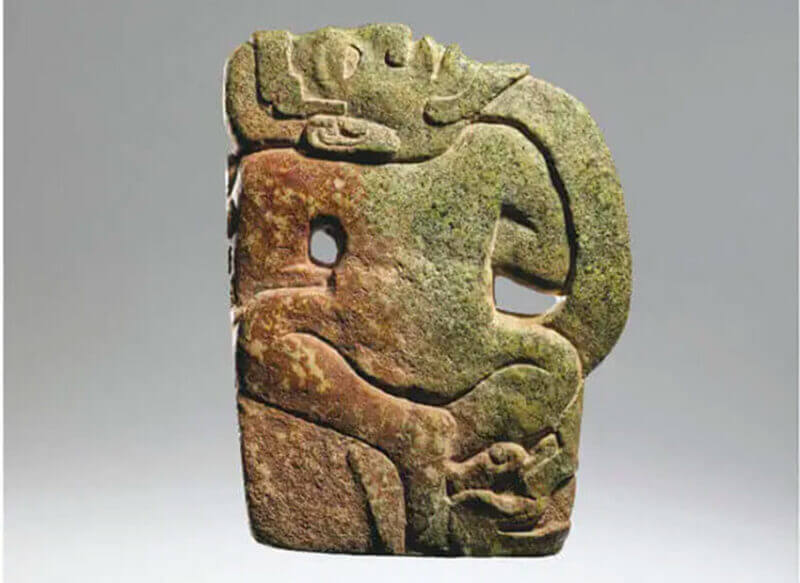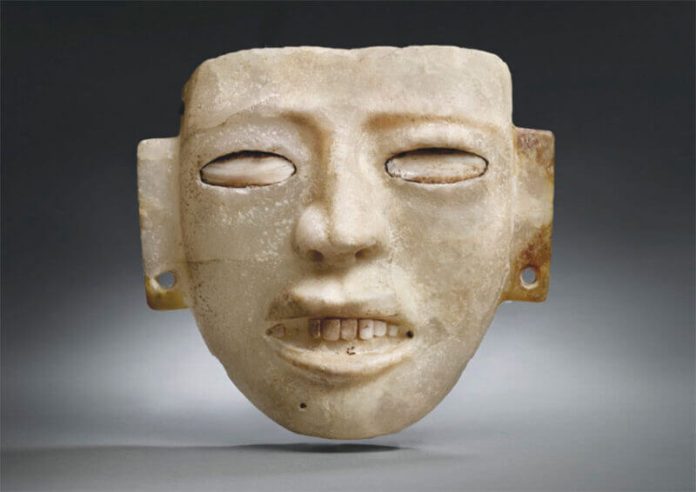Pre-Hispanic Mexican artifacts – including some deemed to be fake – sold for more than 1.6 million euros (US $1.8 million or about 38 million pesos) at an auction in Paris this week that Mexican authorities tried to stop.
The auction house Christie’s Paris sold some 50 Mexican pieces at its Pre-Columbian Art & Taino Masterworks auction on Wednesday.
The most expensive Mexican piece sold was a Mayan hacha or ax, a Mayan ballgame accoutrement, which went for 692,000 euros. Among the artifacts on offer that the National Institute of Anthropology and History (INAH) has deemed to be fakes was a Teotihuacán mask, which sold for 6,000 euros.
According to INAH, 15 of 72 lots that were promoted as being pre-Hispanic artifacts were in fact more recent fakes.
The auction, which sold items worth a total of almost 3.1 million euros, took place despite Mexico’s objections. The Mexican Embassy in France said in a statement in late October that it had contacted the French Ministry for Europe and Foreign Affairs to convey its concern about Christie’s auction and another held by the auction house Artcurial in Paris on Tuesday of last week.

In a new statement issued Tuesday of this week, the Mexican Embassy, along with those of Guatemala, Honduras, Colombia and Peru, once again raised concerns about the commercialization of “cultural assets.”
The embassies expressed their “energetic rejection” of the sale of pre-Hispanic artifacts, asserting that it encourages “pillage, looting, illegal trafficking and laundering of assets … by transnational organized crime.”
“… It deprives the extracted pieces of their cultural, historical and symbolic essence, reducing them to mere objects of decoration for individuals … [and] gives rise to a market of fakes,” they said.
Mexico has failed to halt several recent auctions of pre-Hispanic artifacts in France, but authorities of the two countries signed a letter of intent earlier this year to strengthen cooperation against the illegal trafficking of cultural assets.
However, Culture Minister Alejandra Frausto told the newspaper Reforma that France needs to modify its laws to prevent the sale of such objects at auction.
The art news website Artnet reported that Tuesday’s auction was preceded by an in-person protest, a slew of media articles, and a petition that circulated on Change.org that was signed by 44,767 supporters trying to halt the sale.
But Christie’s defended the auction, saying it was conscious of its “duty to carefully research the art and objects we handle and sell.”
“We devote considerable resources to investigating the provenance of works we offer for sale, and have specific procedures, including the requirement that our sellers provide evidence of ownership,” the auction house said.
With reports from Reforma
